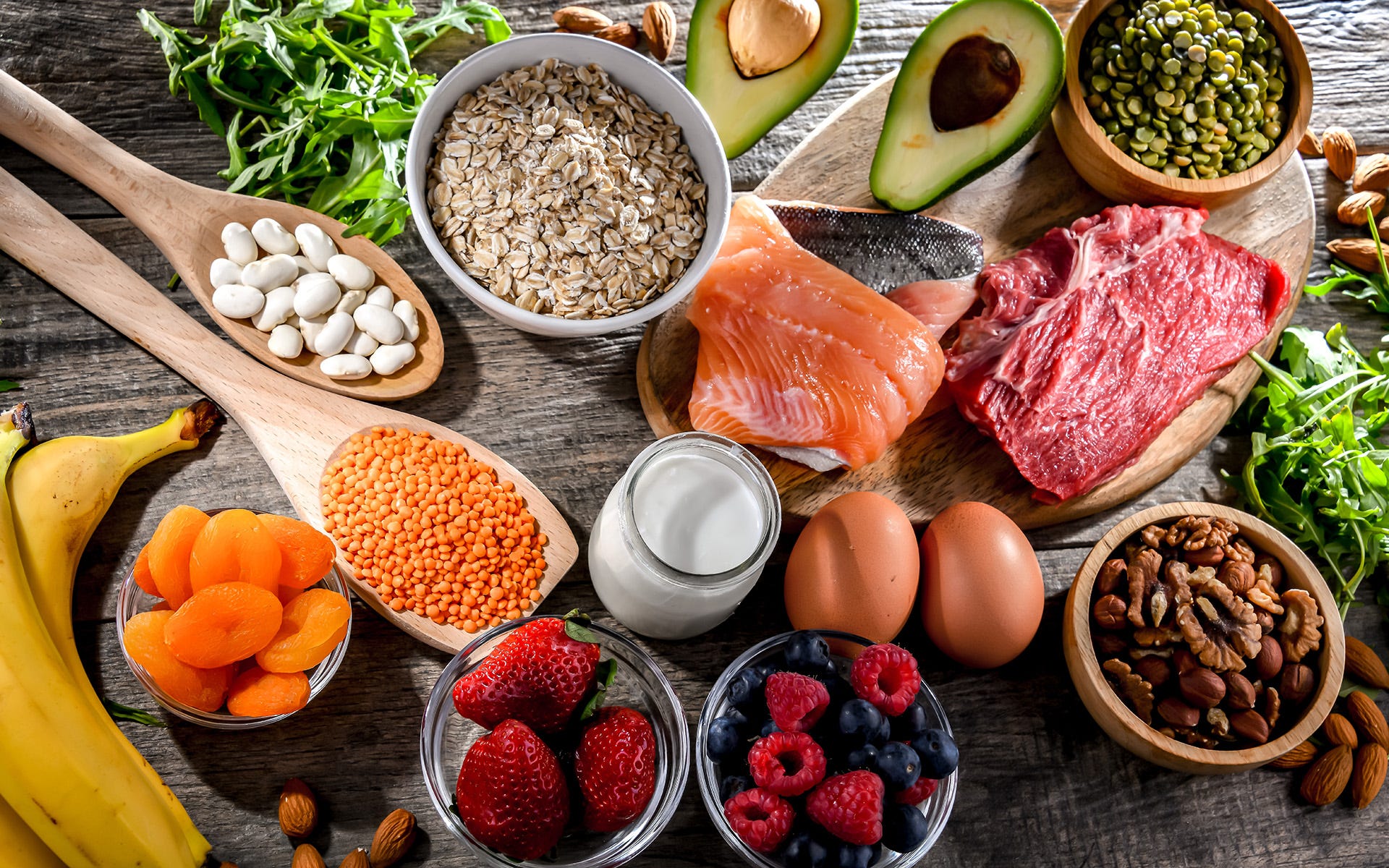
Embarking on the exciting journey of motherhood begins well before the positive pregnancy test. For mums planning to conceive, paying attention to their nutrition can significantly impact their fertility and the health of your future bundle of joy. Here's a concise guide, to the essential macro-nutrients to focus on before falling pregnant.
What are macros and why are they important in pregnancy?
The term ‘macros’ is short for ‘macronutrients’. It refers to the nutrients your body needs in larger amounts to provide energy and includes: protein, healthy fats and carbohydrates1. These nutrients are the key components of most balanced diets and are especially important during pregnancy to ensure the mother meets her own nutritional demands and those of her growing baby2.
There’s lots of things you and your growing baby are doing during pregnancy, and all that work needs fuel—which is why getting enough nutrients during pregnancy is an important step. During pregnancy, it’s recommended that you consume at least 60 grams of protein per day, with 25-35% of your daily calories coming from healthy fats2. The amount of carbohydrates you need will depend on your own personal health and energy needs. It’s generally recommended that women consume more than their usual kilojoule intake during pregnancy, with an additional 1,400 kilojoules per day suggested in the second trimester and 1,900 kilojoules per day suggested in the third trimester9.
So what can you eat during pregnancy to help you reach those macro goals? Some of the best foods for pregnancy can include3:
- Eggs
- Salmon
- Lean red meat
- Tofu
- Milk
- Yogurt
Everyone is different so before making any changes to your diet, it is best to consult a general health practitioner for personalised advice.
1. Protein: The Foundation of Growth
Protein is the cornerstone of a healthy diet, and it becomes even more vital when you're preparing your body for pregnancy. During pregnancy, protein plays a crucial role in the development of the baby's organs, muscles, and tissues4. You should aim to consume a variety of protein rich foods during pregnancy to ensure a well-rounded intake of essential amino acids4.
Food sources: Lean meats, fish, eggs, dairy products, and plant-based sources like legumes and nuts are excellent protein choices.
RDI: 58-60g/day for women who are pregnant5.
2. Healthy Fats: Nourishing Brain and Hormone Development
Don't shy away from fats – they are crucial for the development of your baby's brain and hormonal systems6. Omega-3 fatty acids, which are abundant in fatty fish, are particularly beneficial for brain development3. If you're not a fan of fish, supplements can be a great alternative but please speak to your healthcare provider to ensure you are making the right decision for you and your baby.
Food sources: Avocados, nuts, seeds, olive oil, and fatty fish like salmon are great sources of healthy fats during pregnancy.
RDI: 110-115 mg/day for women who are pregnant7.
3. Complex Carbohydrates: Sustained Energy for Two
Carbohydrates are your body's primary energy source, and during pregnancy, your energy needs increase dramatically. Choose complex carbohydrates to provide sustained energy and essential nutrients like fibre. Complex carbohydrates may also help regulate blood sugar levels, reducing the risk of gestational diabetes8.
Food source: Whole grains, fruits, and vegetables are excellent sources of carbohydrates during pregnancy.
RDI: The Institute of Medicine (IOM) recommends a minimum of 175 grams per day of carbohydrate intake during pregnancy12.
4. Folate: The B Vitamin for Neural Tube Development
Folate, which is a member of the B-vitamin family, is instrumental in preventing neural tube defects in the early stages of pregnancy10. Folate is naturally present in many foods, however, boosting folate intake via supplementation is often recommended by healthcare professionals before and during pregnancy.
Food source: Leafy greens, legumes, fortified cereals, and citrus fruits are excellent folate-rich foods to eat during pregnancy.
RDI: 600 µg/day for women who are pregnant10.


What are good nutrition practices for pregnancy?
Trying to get the right amount of pregnancy nutrition can be a juggle. From thinking about macros and the baby’s needs to ensuring your own body gets enough fuel, there is a lot to consider. Here are some quick tips to help make the journey a little easier:
- Incorporate healthier options into your diet. Consuming a mixture of vegetables, whole fruits, whole grains, protein, healthy fats and low fat dairy is a great start.
- Understand your calorie needs. During the second trimester (13 to 26 weeks) it’s recommended you increase your intake by about 340 calories per day, and by 450 calories per day during the third trimester (26+ weeks)11.
- Limit drinks with caffeine and/or added sugars.
- Avoid alcohol and raw foods such as fish, sushi, unpasteurized milk or cheese, processed lunch meats and raw sprouts.
Of course, every pregnancy is different. Some women experience gestational diabetes, which changes their energy intake needs. So it’s important to always consult with your doctor or health care professional before making changes to your diet.
Preparing your body for pregnancy involves more than just a positive mindset; it requires a mindful approach to nutrition. Focusing on these essential macro-nutrients helps mums to be able to lay the foundation for a healthy and thriving pregnancy. Always consult with your healthcare professional for personalised advice to ensure that you and your baby receive the best possible care.
References:
- Mousa A, Naqash A, Lim S. Macronutrient and Micronutrient Intake during Pregnancy: An Overview of Recent Evidence. Nutrients [Internet]. 2019 Feb 20;11(2):443. Available from: https://dx.doi.org/10.3390%2Fnu11020443
- UCSF Health. Eating Right Before and During Pregnancy [Internet]. ucsfhealth.org. UCSF Health; 2019. Available from: https://www.ucsfhealth.org/education/eating-right-before-and-during-pregnancy
- Kominiarek MA, Rajan P. Nutrition Recommendations in Pregnancy and Lactation. Medical Clinics of North America [Internet]. 2016 Nov;100(6):1199–215. Available from: https://www.ncbi.nlm.nih.gov/pmc/articles/PMC5104202/
- Murphy MM, Higgins KA, Bi X, Barraj LM. Adequacy and Sources of Protein Intake among Pregnant Women in the United States, NHANES 2003–2012. Nutrients. 2021 Feb 28;13(3):795.
Eat For Health. Protein | Eat For Health [Internet]. Eatforhealth.gov.au. Australian Government; 2021. Available from: https://www.eatforhealth.gov.au/nutrient-reference-values/nutrients/protein - Coletta JM, Bell SJ, Roman AS. Omega-3 Fatty acids and pregnancy. Reviews in obstetrics & gynecology [Internet]. 2010;3(4):163–71. Available from: https://www.ncbi.nlm.nih.gov/pmc/articles/PMC3046737/
- National Health and Medical Research Council. Fats: Total fat & fatty acids | Eat For Health [Internet]. Eatforhealth.gov.au. 2021. Available from: https://www.eatforhealth.gov.au/nutrient-reference-values/nutrients/fats-total-fat-fatty-acids
- Tzanetakou IP. Nutrition During Pregnancy and the Effect of Carbohydrates on the Offspring’s Metabolic Profile: In Search of the “Perfect Maternal Diet.” The Open Cardiovascular Medicine Journal. 2011 May 13;5(1):103–9.
- National Health and Medical Research Council. Dietary energy | Eat For Health [Internet]. Eatforhealth.gov.au. 2021. Available from: https://www.eatforhealth.gov.au/nutrient-reference-values/nutrients/dietary-energy
- Health N. Folate | Eat For Health [Internet]. Eatforhealth.gov.au. 2021. Available from: https://www.eatforhealth.gov.au/nutrient-reference-values/nutrients/folate
- Eat Healthy During Pregnancy: Quick tips - MyHealthfinder | health.gov [Internet]. health.gov. Available from: https://health.gov/myhealthfinder/pregnancy/nutrition-and-physical-activity/eat-healthy-during-pregnancy-quick-tips#:~:text=Whole%20grains%20%E2%80%94%20like%20brown%20rice
- Sweeting A, Mijatovic J, Brinkworth GD, Markovic TP, Ross GP, Brand-Miller J, Hernandez TL. The Carbohydrate Threshold in Pregnancy and Gestational Diabetes: How Low Can We Go? Nutrients. 2021 Jul 28;13(8):2599. Available from: https://www.mdpi.com/2072-6643/13/8/2599
